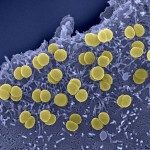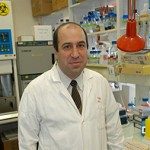Link to Pubmed [PMID] – 14613701
Arch Pediatr 2003 Nov;10(11):1013-5
The pathophysiology of bacterial superinfections of influenza, including meningococcal diseases, remains obscure. Mice, normally resistant to the meningococcus, become susceptible after previous influenza A virus infection. This immunosuppressive effect is transitory and is associated with the peak of the inflammatory anti-virus reaction. These results underline the importance of preventing bacterial superinfections of influenza by the surveillance of any relapse of fever after improvement of the influenza syndrome. At the community level, influenza vaccine, beside its specific effects, might also prevent many cases of invasive superinfections, including meningococcal diseases.

